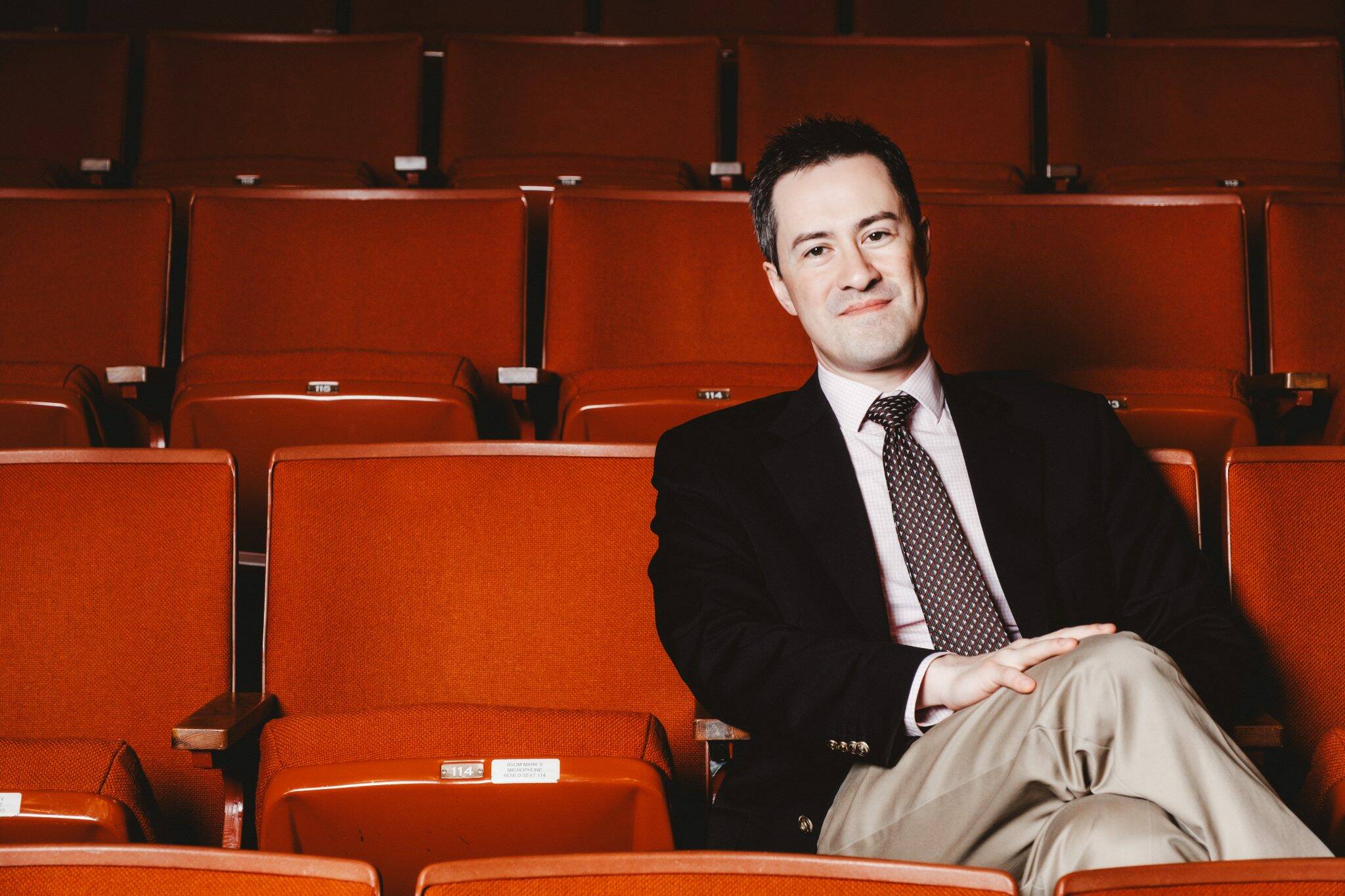If you had four months to live, what memento of your life would you create?
A trio of piano sonatas was Franz Schubert’s artistic farewell, and the compositions now considered among the most significant of his works are scheduled to be performed in a trio of concerts starting next Friday at the Juneau Arts and Culture Center.
The first at 7 p.m. March 10 features international award-winner Andrew Brownell visiting from the Butler School of Music at the University of Texas, the second at 7 p.m. March 17 is by local performer Sue Kazama and the finale at 3 p.m. March 19 by former local resident Jon Hays who organized the series.
“I tried to mostly leave it up to the performers what they want to perform,” Hays said this week. “But with this set of three concerts there a friend and somebody I know in Juneau who asked me can you play these late Schubert sonatas for a few years now.”
Hays, who grew up in Juneau and helped raise money for the piano now at the JACC, said this is the fourth concert series dedicated to highlighting the instrument. He also wanted to feature outside and local musicians, in addition to performing one of the sonatas himself.
“I knew I could not play all of them,” he said. “That would be an hour and 40 minutes of music.”
Schubert’s last sonatas — D 958, 959 and 960 — were composed while he was in the final stages of a long illness between May and September of 1828, dying soon afterward at the age of 31. An article published in Interlude in 2019 notes “these were the first works of the kind he had composed following the death of Beethoven, a composer whom Schubert much admired, and his last three piano sonatas all pay tribute to Beethoven.”
“Freed from the shadow of Beethoven, Schubert finds a new voice,” the article by Frances Wilson states. “Like Beethoven’s final sonatas, Schubert’s late works seem to communicate a sense of acceptance (but never resignation) combined with an ’incompleteness,’ as if he had much more to say, and the music’s propulsive driving force, its almost obsessive creative energy, is a transcendent negation of disorder and death whose overriding message is fundamentally positive.”
Hays said he chose the second composition — Sonata in A major, D. 959 — as a personal preference for his finale concert.
“It opens up sort of majestically,” he said. “It has a killer slow movement that has this descent almost into inner turmoil that was almost unprecedented at the time.”
He said Kazama is familiar with the third in the series — Sonata in B♭ major, D. 960 — and he asked her to participate because “she’s just one of the best pianists living in town right now for classical music.”
That left the first piece — Sonata in C minor, D. 958 — for Brownell’s opening concert. A pianist since the age of 4 who was born in Portland, Oregon, he has spent more than two decades as a solo and chamber music performer in North America, Europe and elsewhere. He is now a faculty member at the Butler School of Music, and said in a phone interview this week he performs as a visiting musician about 10 to 12 times a year.
While his spring schedule is typically packed with academic activities including working with his students as they approach graduation, he said he was talked into his first trip to Alaska through a mutual friend of Hays.
“I learned this Schubert about 17 years ago,” Brownell said. “These last three Schubert sonatas are very standard repertoire (for experienced pianists). It’s not a new work for me, fortunately.”
Brownell, as with the other two pianists, will play additional compositions he selected as part of his program, including a short set by Alexander Scriabin, a controversial Russian pianist during the late 19th and early 20th centuries,
“That was something I was working on in the fall (and) I was sure that was going to end up the program,” Brownell said. “All of that is C-sharp and D-flat, and I picked some other pieces in the same key. The consideration in that case was made because of the key relationships because it all fits together.”
An opera piece by French composer Jean-Philippe Rameau that Brownell said he heard in November is also part of his planned concert in Juneau.
The March 10 performance also is the release date of his album “Shades of Night,” described in a label announcement as “a potpourri of exquisite gems with Romantic overtones, though the music ranges from the baroque to the present day.” Numerous composers are featured from Beethoven to Debussy to Schumann — but not Schubert. Brownell said he’ll bring copies of the album for his scheduled three-day visit to Juneau, although he isn’t sure what he’ll spend his time doing here beyond signing them after the concert
“I don’t know enough about the place to have a bucket list,” he said.
• Contact reporter Mark Sabbatini at mark.sabbatini@juneauempire.com

